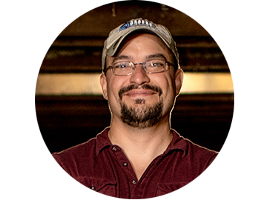Biological Anthropology
UWF faculty conduct projects related to bioarchaeology and forensic anthropology.
Ongoing Bioarchaeology Research
Dr. Miller Wolf’s primary research focuses on analyzing human skeletal remains from archaeological contexts to answer cultural questions about the past. Her primary interests are in social organization, household archaeology, kinship, migration, mortuary ritual, cultural body modification, and identity. She primarily employs biodistance analysis (cranial and dental morphological and metric data) and isotopic analysis (strontium). Research occurs at ancient Maya sites in Honduras (Copan), Guatemala (Ucanal; Tayasal), and Belize (with the Maya Research Program, Blue Creek) and historical and contact period sites in Guatemala (San Bernabe Mission) and Belize (Belize City). She has also conducted research on various other samples from North America (Late Woodland sites in the Lower Illinois River Valley), Mexico (Aztec), and North Africa (Gobero site).
Selected research can be found here.
Conservation and Bioarchaeology
As a bioarchaeologist and Registered Professional Archaeologist, Dr. Miller Wolf is concerned with the conservation of skeletal samples. She co-organized a symposium on this topic at the 2018 Annual Meeting of the Society of American Archaeologists and then guest edited a special issue of Advances in Archaeological Practice that was published in the Spring of 2019. The issue covered major themes related to field and laboratory best practices; documentation and conservation methods; examples of large conservation projects from Central America, East Asia, and North America; Honduras, Mongolia, North America; and the ethics of skeletal analysis. It can be found in Issue 7(1), DOI: 10.1017/aap.2018.48.



